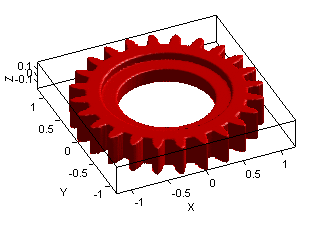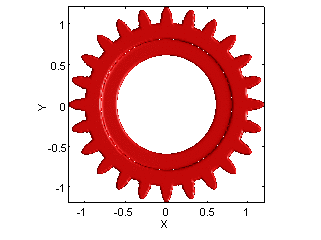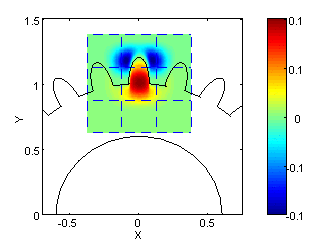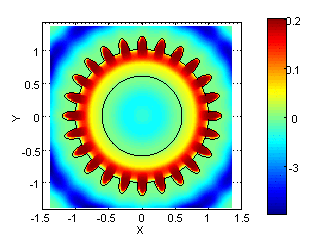
| Home |
| The WEB-Method |
| Examples |
| Publications |
| Contact |
CSG Models
Weight functions for models in constructive solid geometry (CSG) can be constructed with the aid of Rvachev's R-functions. This technique provides a fully automatic mechanism for combining ``primitive'' weight functions (defining, e.g. halfspaces, ellipsoids, cubes, etc.) according to specified set operations.
| Set operation | Corresponding standard R-function |
|---|---|
Complement:  |
 |
Intersection:  |
 |
Union:  |
 |
A drawback of the standard R-function method is the global impact of each primitive function, e.g. modifying a local feature of the model changes the entire weight function w. Moreover, for complicated models, evaluating the weight function requires many recursive steps. These disadvantages can be overcome using local R-weights wk. Each wk is constructed via the R-function method with respect to a small part of the object. Then the wk are combined with a suitable blending technique, e.g., using B-Splines:
 .
.
 |
 |
The CSG description of the cog wheel, shown above, involves 32 primitives. With B-Spline blending this number is reduced to 4 primitive weights for a local R-weight wk, as shown on the left below. The corresponding global weight function w is visualized on a cross section on the right.
 |
 |
Local R-weights provide efficient tools for modeling essential boundary conditions in finite element simulations with web-splines. Depending on the number of primitives, substantial savings in computing time are possible compared to a global approach.
Author: IVM Fuchs GmbH ; Last modification: 2003/11/10 18:23:13 UTC.
| [Home] [The WEB-Method] [Examples] [Publications] [Contact] |